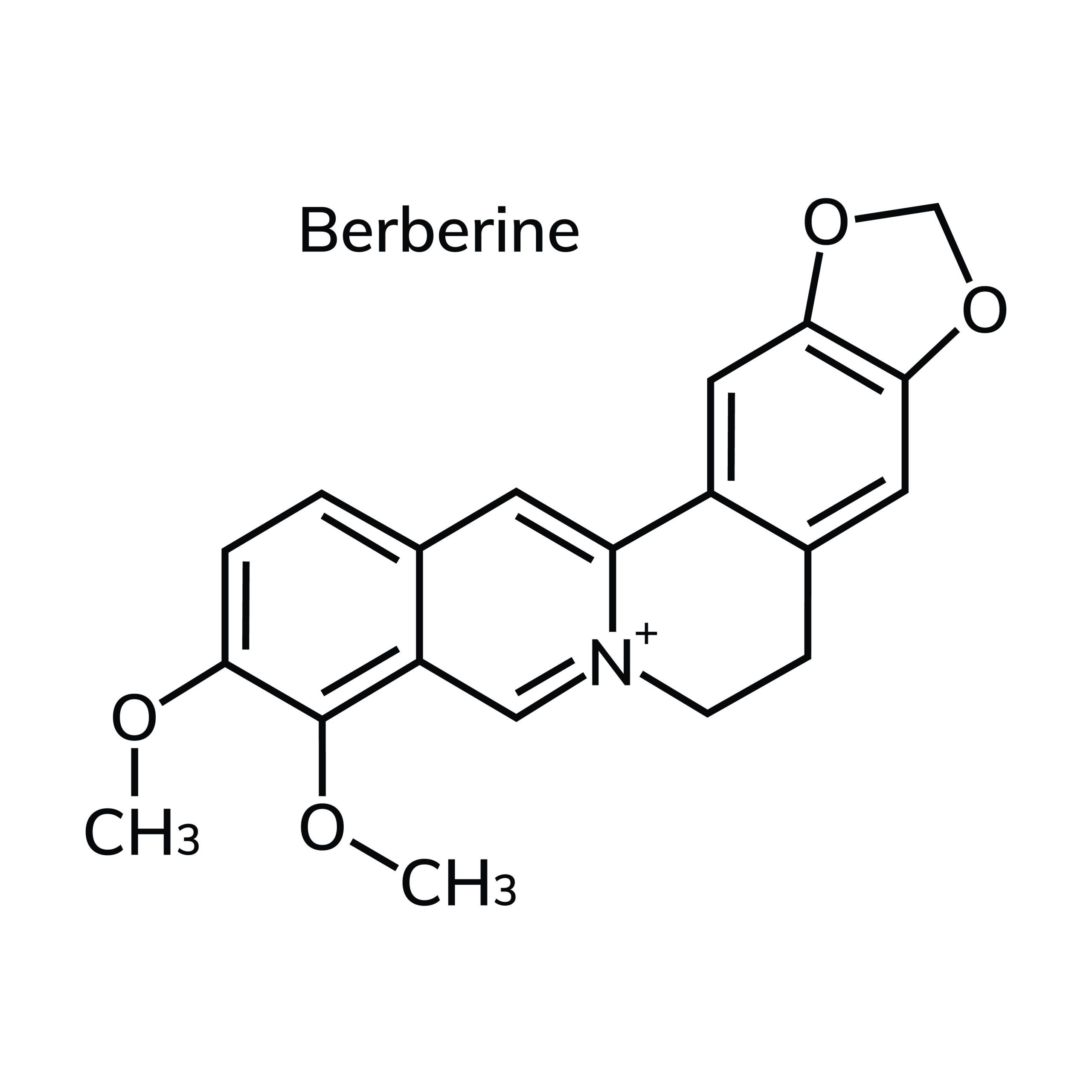Berberine Exposed: The Natural Weight Loss Aid with Hidden Risks
February 7, 2024
 1045
1045 
In the quest for natural weight loss solutions, berberine has emerged as a frontrunner, captivating the attention of health enthusiasts worldwide.
This compound, derived from various plants used in traditional medicine, is often lauded for its ability to facilitate weight loss and manage blood sugar levels.
With an increasing number of individuals seeking alternatives to conventional weight loss medications, berberine has been propelled into the spotlight, celebrated for its “natural” label.
However, this growing trend masks a critical misconception: that natural automatically equates to safe.
This blog aims to shed light on the overlooked side of berberine, revealing that its natural origins do not exempt it from having potentially adverse side effects.

Berberine is found in the roots, bark, and stems of several plants, including the Berberis species, goldenseal, Oregon grape, and tree turmeric.
Historically, it’s been utilized in traditional Chinese and Ayurvedic medicine to treat various ailments, from digestive issues to infections.
In recent years, berberine has gained prominence for its purported benefits in weight loss and blood sugar management, making it a popular supplement among those looking to shed pounds and control diabetes symptoms naturally.
It’s believed to enhance insulin sensitivity and boost metabolism, contributing to its weight loss efficacy.
However, as we delve deeper into the effects of berberine, it becomes apparent that its benefits come with a caveat: a spectrum of side effects that challenge the notion of its safety.

While berberine is celebrated for its natural benefits, it harbors a dark side that often remains under-discussed.
The side effects associated with berberine not only cast a shadow on its efficacy but, in some cases, can significantly outweigh the benefits, especially when not used under professional guidance.
Digestive Issues:
Among the most immediate and discomforting side effects of berberine are gastrointestinal disturbances.
Users frequently report cramping, diarrhea, and constipation, symptoms that can severely impact daily life and well-being.
These digestive issues are not merely inconveniences; they signify the body’s struggle to adapt to berberine, potentially deterring its continued use for weight loss and blood sugar management.
Low Blood Sugar (Hypoglycemia):
Berberine’s impact on blood sugar levels is a double-edged sword.
While it can beneficially lower glucose levels in those with diabetes, it poses a serious risk of hypoglycemia.
This danger is amplified when berberine is taken alongside other diabetes medications, creating a precarious situation where blood sugar levels can drop to dangerously low levels, necessitating immediate medical attention.
Low Blood Pressure:
Similarly, berberine’s ability to lower blood pressure, though potentially beneficial for some, can induce hypotension in others.
This excessive drop in blood pressure can lead to dizziness, fainting, and in severe cases, can be life-threatening, especially for individuals on blood pressure medications or those with pre-existing low blood pressure conditions.
Liver Health Concerns:
Perhaps more alarming are the findings that high doses of berberine can elevate liver enzymes, an indicator of liver stress or damage.
This side effect poses significant concerns about the long-term use of berberine, especially for individuals with underlying liver conditions or those taking other medications metabolized by the liver.
Fatigue and Headaches:
While less common, the side effects of fatigue and headaches cannot be overlooked.
These symptoms can affect an individual’s ability to perform daily tasks, diminishing the quality of life and further questioning the viability of berberine as a safe supplement.
Drug Interactions:
The risk of berberine interacting adversely with other medications stands as a significant concern.
Berberine can alter the metabolism of various drugs, potentially leading to increased side effects or decreased effectiveness.
This interaction not only complicates the management of existing health conditions but also introduces new risks to the user’s overall health.
In light of these potential side effects, the appeal of berberine as a natural and safe alternative for weight loss and blood sugar management is considerably diminished.
The risks associated with its use—ranging from manageable digestive discomfort to severe hypoglycemia, hypotension, liver damage, and dangerous drug interactions—underscore the importance of proceeding with caution.
It becomes evident that the natural origin of berberine does not inherently guarantee its safety, highlighting the critical need for medical supervision and a well-informed approach to its use.

The allure of berberine as a safe, natural alternative to traditional weight loss pharmaceuticals is a compelling narrative that has captured the attention of many seeking a holistic approach to health.
This perception is largely fueled by the widespread belief in the inherent safety of natural supplements over synthetic medications.
However, this belief dangerously overlooks the significant side effects and risks associated with unsupervised berberine use.
A critical gap in public knowledge exists regarding the potential adverse effects of berberine.
Many are unaware that, despite its natural origins, berberine can interact with the body in powerful ways, mirroring the pharmacological actions of synthetic drugs.
The consequences of self-medication, especially without professional guidance, can range from uncomfortable to severe.
The risks of hypoglycemia, hypotension, liver damage, and negative drug interactions are not widely recognized, leading some individuals to inadvertently jeopardize their health in the pursuit of natural wellness.
The dangers of self-medication are compounded by the ease of access to berberine supplements, which can be purchased without a prescription.
This accessibility, combined with a lack of regulatory oversight on dosage and purity, sets the stage for potential misuse and overuse.
The result is a precarious situation where the quest for health through natural means may lead to unintended health complications.
Throughout this discussion, we’ve unveiled the darker side of berberine, challenging the notion that natural always equates to safe.
While berberine holds promise for weight loss and blood sugar management, its use is not without risks.
The potential for significant side effects, from digestive distress to life-threatening hypoglycemia and drug interactions, underscores the need for caution.
It’s imperative to recognize that natural supplements like berberine can have powerful effects on the body, warranting the same level of scrutiny and caution as pharmaceutical drugs.
The decision to use berberine should not be taken lightly, nor based on trends.
Instead, it should be approached with a well-informed perspective, prioritizing safety and health above all.
Let this serve as a reminder of the importance of consulting healthcare professionals before incorporating any new supplement into your regimen.
Only through professional guidance can the benefits of berberine be safely harnessed, ensuring that the pursuit of natural health solutions does not come at the cost of well-being.
In the realm of health and wellness, informed decisions based on sound medical advice are paramount.
Remember, natural does not automatically mean safe.
References:

A new study suggests that a widely used sugar substitute found in diet sodas, chewing gum, and low-sugar yogurt may elevate insulin levels. This could increase the long-term risk of heart disease. “Artificial sweeteners have infiltrated nearly all types of food, making it crucial to understand their long-term health effects,” said Yihai Cao, senior author […]

Diet Coke has long been a fan-favorite among soda lovers who want a fizzy, guilt-free alternative to traditional soft drinks. While its zero-calorie, zero-sugar label makes it seem like a healthier option, the reality is far more concerning. Despite its undeniable popularity, Diet Coke’s nutritional profile has raised red flags among health experts for years. […]

New study shows that embracing an anti-inflammatory, plant-forward diet can support cognitive function and help reduce the risk of dementia. What You Eat Shapes Your Brain The food you eat doesn’t just impact your body—it also affects your brain. Research suggests that eating an anti-inflammatory, plant-based diet can help improve memory, focus, and overall brain […]